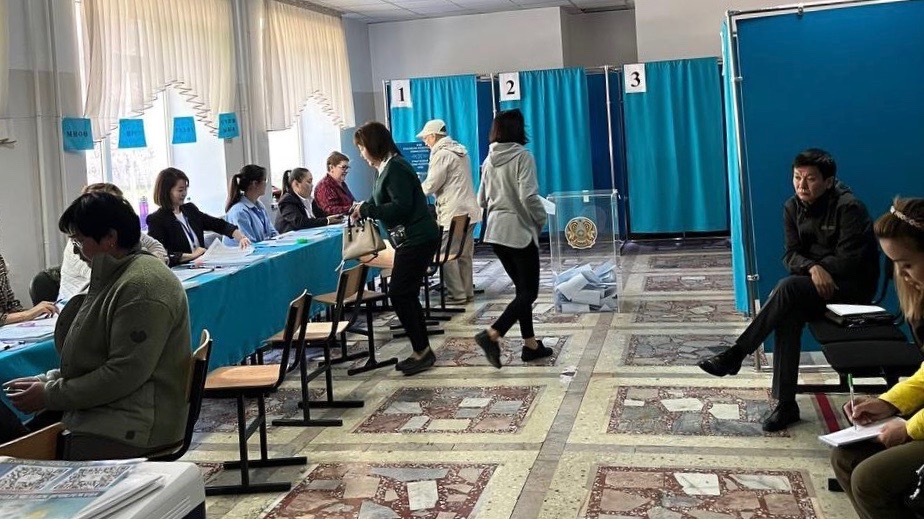Crucial amendments to Kazakhstan’s constitution were passed in a referendum held on Sunday, June 5, with 77% votes in favor, paving the way for political reforms in Central Asia’s largest country. According to the National Electoral Commission, more than 68% of all voters participated in the referendum.
President Kassym Jomart Tokayev proposed to amend the 1995 constitution of the former Soviet Republic as part of his project to build a “New Kazakhstan” after coming to power in 2019 replacing long-term President Nursultan Nazabayev.
Tokayev addressed the nation on the eve of the vote and claimed that the reforms will bring a “second republic” in the country. Tokayev had promised political reforms in an address to the nation in March this year and blamed “domestic stagnation” as one of the reasons for the unrest witnessed in January. He had promised to bring down the “super presidency” through the participation of more political groups in the electoral process.
The proposed amendments will change at least one-third of the existing constitution and provide for greater representation of groups in the parliament along with decentralization of power. They also seek to reduce the power of the President to appoint crucial state officials and deputies in the parliament and do away with the post of the “leader of the nation” or “elbay”.
Nazerbayev remained as president of Kazakhstan from the time of its disintegration from the Soviet Union in 1991 until 2019. Even after leaving the post formally, he remained influential in the country’s politics as elbay.
The amendments also introduce a mixed electoral system for the country’s parliament, as well as division of power between different branches of government.
The new amendments seal the abolition of death penalty in the legal system and include the provision of a Constitutional Court as the highest court in the country.
As per Kazakhstan’s electoral laws, a referendum is considered passed if 50% of the voters in at least two-third of the country’s regions vote in its favor.
Kazakhstan witnessed large-scale protests in January this year. At least 230 people were killed in riots across the country during the protests. Though the protests initially started after the government withdrew subsidies from petroleum and energy products, Tokayev had alleged that the violent demonstrations were carried out by “terrorists” on behalf of external elements to replace the government through a coup.
The violence only subsided after Tokayev forced the Prime Minister to resign and rolled back the decisions to withdraw subsidies. He also invited troops from the Collective Security Treaty Organisation (CSTO), which includes Russia and other Central Asian countries to re-establish law and order.





